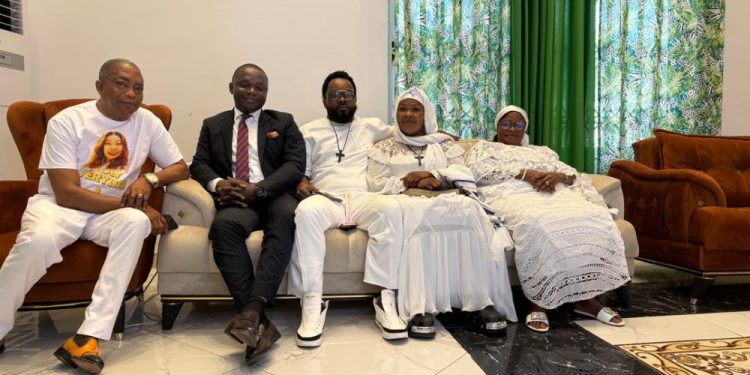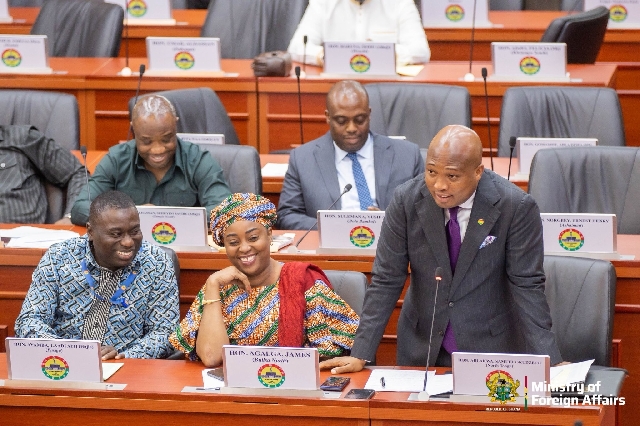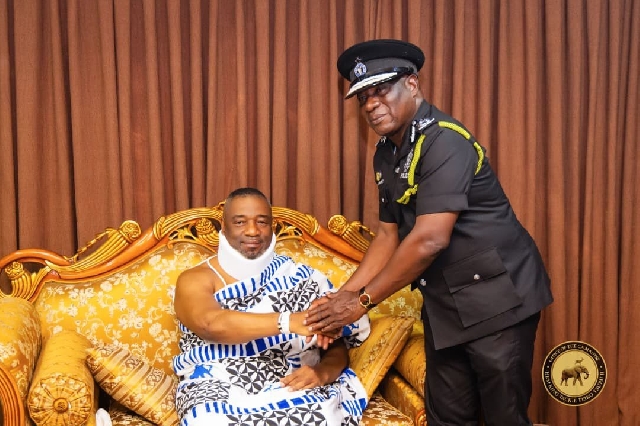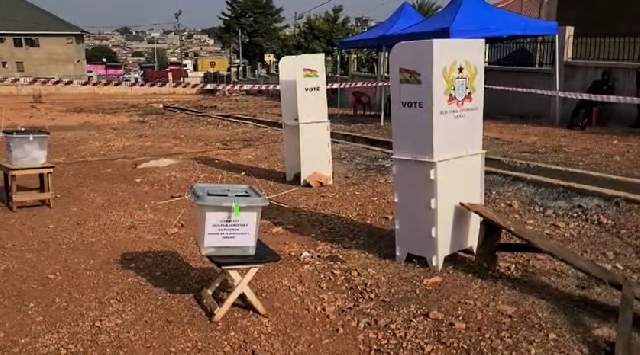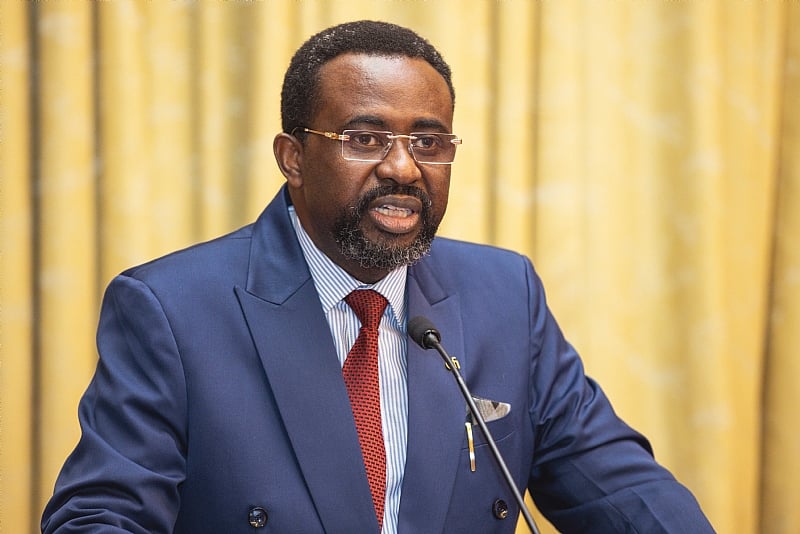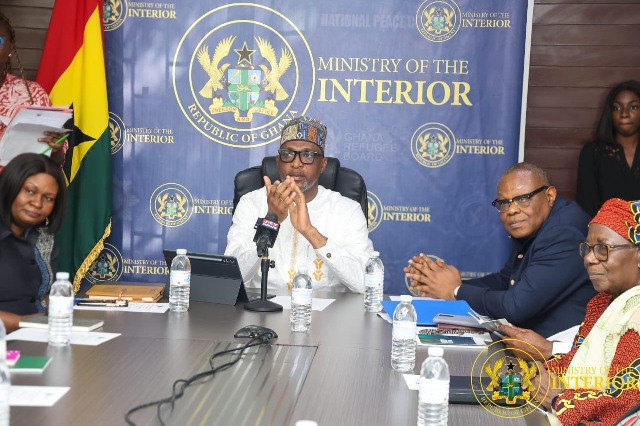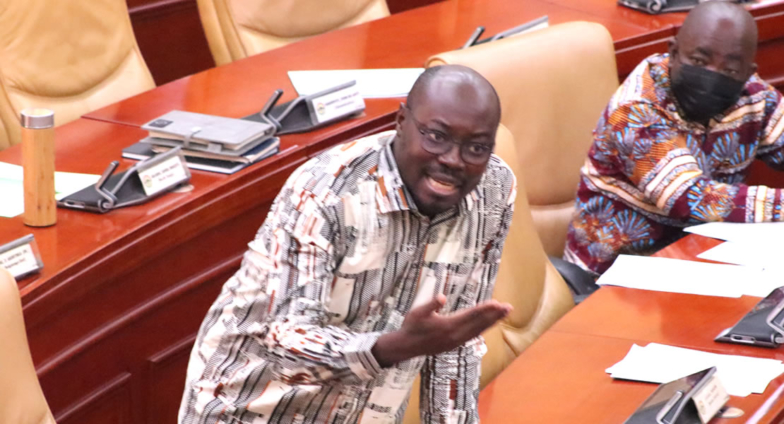The working people of Ghana will do whatever it takes to prevent the imposition of needless hardships–TUC
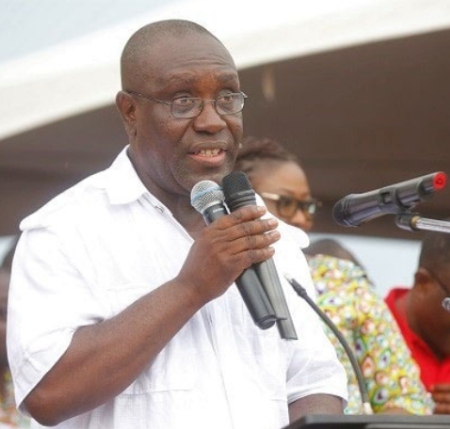
The Trades Union Congress (TUC), said, it will resist any conditionality that will put them into any economic hardship as government run to IMF for a bailout. TUC issued the warning following government’s decision to seek support from the IMF. According to Media reports, officials from the International Monetary Fund are expected in Ghana on Wednesday, July 6, 2022. However, a statement signed by TUC Secretary General, Dr. Anthony Yaw Baah said: “Ghana has done this seventeen times and the government has just announced the commencement of engagements for the eighteenth IMF-sponsored programme. One thing is very certain – the eighteenth IMF programme will not solve our problems. “Therefore, we should be prepared for the nineteenth, twentieth and more programmes in the next few years, even though it is so obvious that IMF programmes pay practically no attention to the removal of structural constraints to sustainable growth and development,”He. stated. He added: “We would like to remind the government that, as part of the negotiations for the 2021 and 2022 base pay, we agreed to the four and seven percent pay increases respectively on condition that the government will not declare redundancies in the public service and that government will continue to employ young people into the public service. “We would like the government to note that the working people of Ghana will do whatever it takes to prevent the imposition of needless hardships on them and the good people of Ghana.” Source: Apexnewsgh.com
UER: Disappointed gov’t workers locked up CLOGSAG office over malnourished 4% increment
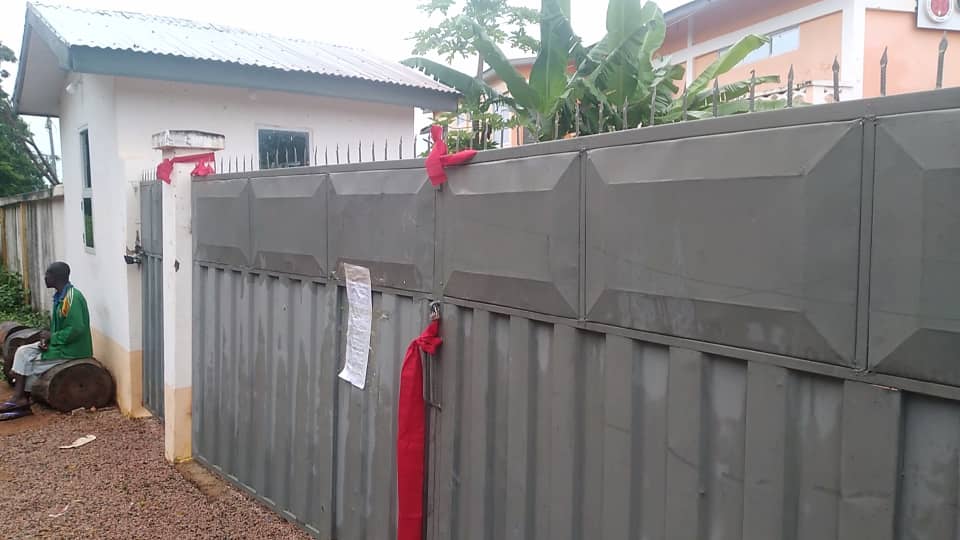
As shocking as it was, angry public sector workers in the Upper East Region with one voice have locked up the regional office of CLOGSAG to avoid leadership from getting entry into the office. According to the angry workers, they are not pleased with the proposed 4% salary increment by the government as they blamed their executives for a disappointing negotiation on their behalf. CLOGSAG and other worker’s unions in Ghana were engaged in a negotiation table with the government, the earlier proposed demand was a 15% salary increment for 2021/2022 but the government declined their request and rather proposed a 4% increment and this development has brought several agitations by workers unions. NOTICE ON PREMISES OF CLOGSAG BY AGGRIEVED WORKERS At exactly 6:00am, some aggrieved public sector workers stormed the offices of the civil and local government staff Association to prevent the executives from getting access to the office. However, the angry workers also pasted a notice in the front gate of the office, as they stated the action taken by the workers directing their executives to go back for better negotiation with the government on their salaries increment. Apexnewsgh.com/Ghana/Ngamegbulam Chidozie Stephen Please contact Apexnewsgh.com on email apexnewsgh@gmail.com for your credible news publications. Contact: 05555568093
Stop presidential spouse salaries – TUC to Akufo-Addo
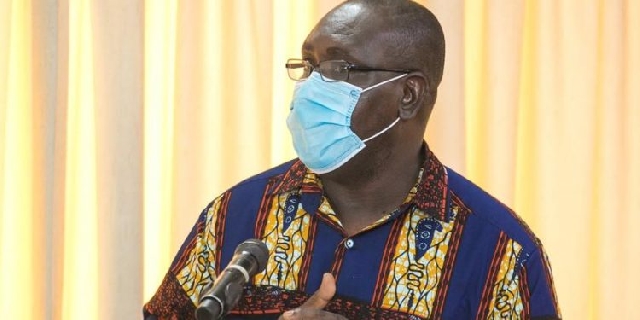
The Trade Union Congress (TUC) has kicked against the payment of salaries to the wives of President Nana Akufo-Addo and Vice-President Mahamudu Bawumia. There is public outcry over the agreement of parliament to pay the First Lady, Mrs Rebecca Akufo-Addo and Dr Bawumia’s wife, Mrs Samira Bawumia, salaries equivalent to that of cabinet ministers. The salaries have also been backdated to January 2017. Adding its voice to the many groups and individuals that have condemned the move, the TUC, in a statement, said the spouses of presidents and vice-presidents are not specified under Article 71 of the Constitution of Ghana and, therefore, wonders why they should receive salaries pegged to emoluments and privileges for officeholders specified under Article 71. “It is true that salaries of some presidential staffers not specified under Article 71 receive emoluments that are the level of ministers or even higher, in accordance with the Presidential Office Act, 1993(Act 463), Legal Service Act and other acts. But it should be noted that the duties and responsibilities of Article 71 officeholders and all jobholders in the public service, including presidential staffers, are clear. The spouses of presidents and vice-presidents have not been officially assigned any such duties and responsibilities. Therefore, they are not qualified to receive salaries from the public purse,” the statement said. The TUC stated that although Ghanaians appreciate what the first and second ladies are doing to support women’s rights, child rights, and other noble initiatives towards social and economic development of the country, neither the Constitution of Ghana nor the laws of land assign them any official duties and responsibilities. “Therefore, the Trades Union Congress cannot support the payment of salaries to the spouses of presidents and vice presidents even if the Ntiamoa-Baidu’s Committee recommended the payment of such salaries.” The statement added that “it is simply not right for anyone who has not been officially assigned duties and responsibilities in the public service to receive monthly salaries.” The TUC has, thus, advised President Akufo-Addo to use all the powers accorded him by the Constitution of Ghana, first, to stop the payment of the salaries to his wife and the wife of the Vice President immediately, until they are officially assigned duties and responsibilities. Below are details of a statement by the TUC: We have followed the ongoing spirited public debate on the payment of salaries to spouses of presidents and vice presidents. Here are the facts we have gathered so far: 1) The payment of allowances to spouses of presidents and vice presidents was introduced by the first Government of 4th Republic under the late former President Rawlings. 2) These allowances have been handled administratively by the Office of the President. 3) The Presidential Emoluments Committee chaired by Professor Ntiamoa-Baidu recommended that, henceforth, the wives of presidents and vice presidents should be paid monthly salaries at the level paid to cabinet ministers, as part of the privileges recommended for presidents and vice presidents. 4) The 7th Parliament, which was dissolved on 6th January 2021, approved the recommendation by Ntiamoa-Baidu’s Committee to convert these allowances to monthly salaries. 5) Salary arrears dated back to January 2017 have since been paid to the wives of President Akuffo-Addo and Vice-President Bawumia, in accordance with the Committee’s recommendation which was approved by NDC and NPP Members of Parliament. The spouses of presidents and vice presidents are not specified under Article 71 of the Constitution of Ghana. The question is: why should they receive salaries pegged to emoluments and privileges for officeholders specified under Article 71? It is true that salaries of some presidential staffers not specified under Article 71 receive emoluments that are the level of ministers or even higher, in accordance with the Presidential Office Act, 1993(Act 463), Legal Service Act and other acts. But it should be noted that the duties and responsibilities of Article 71 officeholders and all jobholders in the public service, including presidential staffers, are clear. The spouses of presidents and vice presidents have not been officially assigned any such duties and responsibilities. Therefore, they are not qualified to receive salaries from the public purse. Ghanaians appreciate what the first and second ladies are doing to support women’s rights, child rights, and other noble initiatives towards social and economic development of our country. But neither the Constitution of Ghana nor the laws of land assign them any official duties and responsibilities. Therefore, the Trades Union Congress cannot support the payment of salaries to the spouses of presidents and vice presidents even if the Ntiamoa-Baidu’s Committee recommended the payment of such salaries. It is simply not right for anyone who has not been officially assigned duties and responsibilities in the public service to receive monthly salaries. The Committee probably sought to regularize the payment of allowances which were being paid already. But you cannot regularize the payment of allowances which has no legal basis. The ongoing passionate debate indicates clearly that this issue is very important to Ghanaians. We would like to advise President Akufo-Addo to use all the powers accorded him by the Constitution of Ghana, first, to stop the payment of the salaries to his wife and the wife of the Vice President immediately, until they are officially assigned duties and responsibilities. The President should also ensure that all such payments made to his wife and the wife of the Vice-President are refunded immediately. When the time comes for spouses of presidents and vice presidents to be assigned official duties and responsibilities that will qualify them to receive salaries from taxpayers’ money the executive arm of government should remember the spouses of the Speakers of Parliament (the heads of the legislative arm of government) and the spouses of Chief Justices (the heads of the judiciary arm of government). They can also perform some official duties. We would also like to advise the President to initiate a process towards the establishment of a Committee/Commission made up of experts from various fields to advise the government on salaries for all jobholders in
No freeze on public sector salaries — Akufo-Addo
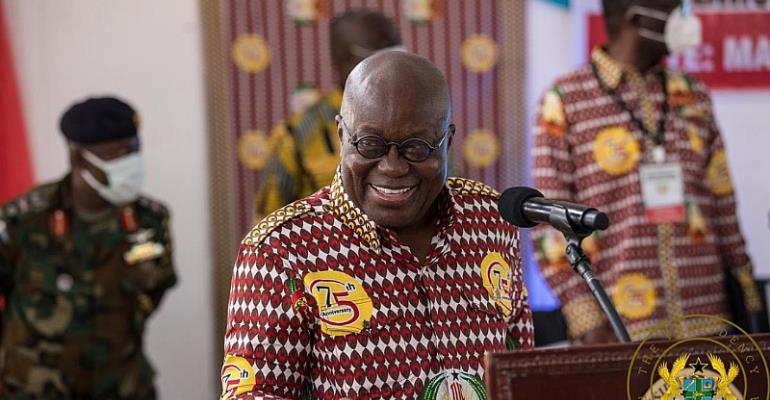
President Nana Akufo-Addo is appealing to the Trades Union Congress and Organised Labour to assist Government in the country’s post-COVID-19 economic recovery efforts. The President also dismissed allegations that public sector salary increment had been frozen. Speaking at the 11th Quadrennial Congress of the Trades Union Congress, on Tuesday, 23rd March 2021, President Akufo-Addo acknowledged that at the height of the pandemic, Government instituted several measures and interventions to lessen the impact of COVID-19 on lives and livelihoods. “These measures sustained the economy, restored some lost jobs and incomes, whilst opening windows of new opportunities for others. The time has now come for us to take the next set of actions required for the sustained recovery of the economy,” he said. These sets of action, he explained, have been outlined in the 2021 Budget Statement and Economic Policy of Government. “The truth of the matter is that we are not in normal times, and I appeal to all Ghanaians, including Organised Labour, to assist Government in this endeavour to help rebuild our public finances and economy. We need to mobilise additional resources to cater for the new challenges confronting us whilst meeting other statutory requirements,” the President said. He continued, “I, therefore, urge all Ghanaian workers to bear with government in these unusual and rather challenging times. I am confident that sooner, rather than later, and together, we can create the happy, progressive and prosperous nation we all desire.” Whilst appreciating the concerns expressed by a section of Ghanaians, especially, with regards to imposition of some new taxes, President Akufo-Addo reiterated that “salary increments for public sector workers have not been frozen for the next four years”. The President told the gathering that, but the onset on COVID-19, all the macroeconomic indices, between 2017 and 2020, were all pointing in the right direction, evidenced by a cut in the fiscal deficit, stability of the currency, reduced cost of borrowing, and annual GDP growth rates of 7%, with Ghana, within the period, becoming the largest recipient of foreign direct investment in West Africa. “COVID-19 resulted in a drastic slowdown in economic activity and a huge drop in domestic revenues, combined with a sharp and unplanned hike in COVID-related expenditures. In sum, this unprecedented crisis led to a sudden shortfall in Government revenues amounting to some thirteen billion, six hundred thousand cedis (GH¢13.6billion), and an unexpected and unavoidable rise in expenditures of some eleven billion, seven hundred thousand cedis (GH¢11.7billion), he said. The 2021 budget, the President explained, has set the goal of reducing the budget deficit gradually from 11.7% in 2020 to less than 5% by 2024, whilst growing the economy and creating jobs. “To accomplish this, additional sources of revenue are required, and that is the reason why the budget introduced four key revenue measures to improve on sanitation and pollution, improve the health sector, and defray the cost of the financial sector clean-up,” he added. In addition to this, President Akufo-Addo told the gathering that, towards revitalising and modernising the Ghanaian economy, and returning it to high and sustained growth for the next three years, Government has developed and is currently implementing the one hundred-billion-cedi (GH¢100 billion) Ghana CARES ‘Obaatampa’ Programme. The key projects under the CARES Programme includesupporting commercial farming and attracting educated youth into commercial farming;building the country’s light manufacturing sector;developing engineering/machine tools and ICT/digital economy industries;fast tracking digitalisation;developing Ghana’s housing & construction industry;establishing Ghana as a Regional Hub;reviewing and optimising the implementation of Government flagships and key programmes; andcreating jobs for young people, and expanding opportunities for the vulnerable in society, including persons with disabilities. Touching on the matter of lumpsum benefits to 2020 pensioners, the President assured Organised Labour that SSNIT and the National Pensions Regulatory Authority (NPRA) are working with the Ministry of Employment and Labour Relations on the imminent resolution of this matter, assuring that the matter would have been concluded by the end of the year. On the issue of the National Unemployment Insurance Scheme that was announced last year, President Akufo-Addo noted that a Committee, made up of the members of the Social Partnership Council, has been setup by the Ministry of Finance to look at the establishment of this Scheme, which will provide temporary income support to workers that are laid off. “The Ministry of Finance has already earmarked some fifty million cedis (GH¢50 million) towards its operationalisation once discussions are completed,” he added. Please contact Apexnewsgh.com on email apexnewsgh@gmail.com for your credible news publications. Contact: 0555568093
Retiring workers for 2020 earning less under pensions reform

Retiring workers for 2020 have been made victims of the pensions reform system. According to a Daily Graphic investigation published on October 5, 2020, the promise of better retirement earnings has only delivered less than what the pensions regulator, previously gave to retirees. The investigation also revealed that among tiers one and two, benefits remunerated to people who retired this year under the National Pensions Act, 2008 (Act 766) received an average three times lower under the PNDC Law 247. However, the differences are in spite of comparisons in the ranks achieved, incomes earned and the number of years one worked and contributed to the scheme prior to retirement. According to the Daily Graphic, a nurse who retired this year as a Deputy Director of Nursing Services (DDSS) in the Upper West Akim District in the Eastern Region received GH¢16,019.70, made up of GH¢10,019.70 as Past Credit under tier one and GH¢6,000 from tier two investments. The nurse whose name is withheld said she had worked for 38 years and contributed to the pension scheme for 504 months. Another, whose name is also withheld and served as a community health nurse/ midwife and retired in 2019 said she received GH¢62,607.23, after contributing for 508 months to the pension system. The nurse told the Daily Graphic that she was bemused and was still recovering from what she describes as a “shock” which came with the amount she received5 as Past Credit. “When they printed my statement for me in the district office of SSNIT, I had a blackout. I sat there for more than 30 minutes without being able to open my mouth,” she narrated. Petition to SSNIT The nurse, however, revealed she wrote a petition to the district office of the SSNIT to look into the matter indicating that with “38 years of unblemished service, the amount paid was just a little over GH¢10,000”. According to her, the petition also noted that the amount “cannot do much in this economy of ours to secure a peaceful retirement”. SSNIT, in a response to the nurse, said that the formula used in calculating the benefits for pensioners was prudent and that the retired nurse was not in any way cheated but was paid the right due amount under the Pensions Act 766. Others retirees stories A teacher in the Jaman South District of the Ashanti Region who retired as Assistant Director disclosed, he had received GH¢10,644.31 as a benefit, after working for 34 years and contributing for 405 months. While another teacher who retired on the same rank in 2018 said he had received about GH¢63,256, after contributing for around 401 months. The story is also the same for a staff member of the Ghana Water Company Limited (GWCL) whose name is also withheld. The former staff member said he had retired earlier this year under Pensions Act 766 but only received GH¢42,369.65, comprising GH¢15,369.65 as Past Credit under tier one and GH¢27,000 under tier two, after working for 37 years and contributing for 444 months to the scheme. Also, a member of staff of the GWCL who retired on a lower rank under Act 247 in 2018 received GH¢61,410.56, after contributing for 405 months. They both worried why a new law that permits them to benefit more from the pensions system would make its contributors and retirees rather worse off. “It is pathetic and everybody should come on board for us to look at it. Is this what we want for people who have sacrificed and given their all for their country?” one of them quizzed. Response from SSNIT, NPRA and Trade Union Congress The Social Security and National Insurance Trust (SSNIT), National Pensions Regulatory Authority (NPRA), and the Trade Union Congress (TUC) were contacted in separate interviews on the matter. Though they all indicated their awareness of the disparity in pensions benefits under Act 766 and Act 247, they assured that they were teaming up with the government to address the situation. The Director-General of SSNIT, Dr. John Ofori Tenkorang, indicated that the disparities were however due to what he describes as “transitional challenges”. According to him, his outfit was notified of a letter from the government that pledged to increase the disparities in what a pensioner would have received as a benefit under Act 247 and what the contributor truly received under Act 766. “After this transition period, the simulations show that everybody’s Past Credit and tier two will outstrip whatever he or she would have got under Act 247. Also, the lifetime pension benefits under Act 766 are better than under Act 247, and that is an undisputed fact,” Dr. Tenkorang said. He added, “I have directed my team to work out those differences for us to submit to the Cabinet,” he said. The implementation and regulation of the tier three pensions scheme under Act 766 which started in 2010 was greeted as the finest stake to guarantee retirement income security through pension savings yet its implementation has been riddled with various delays and challenges for contributors and pensioners. Source: www.ghanaweb.com



